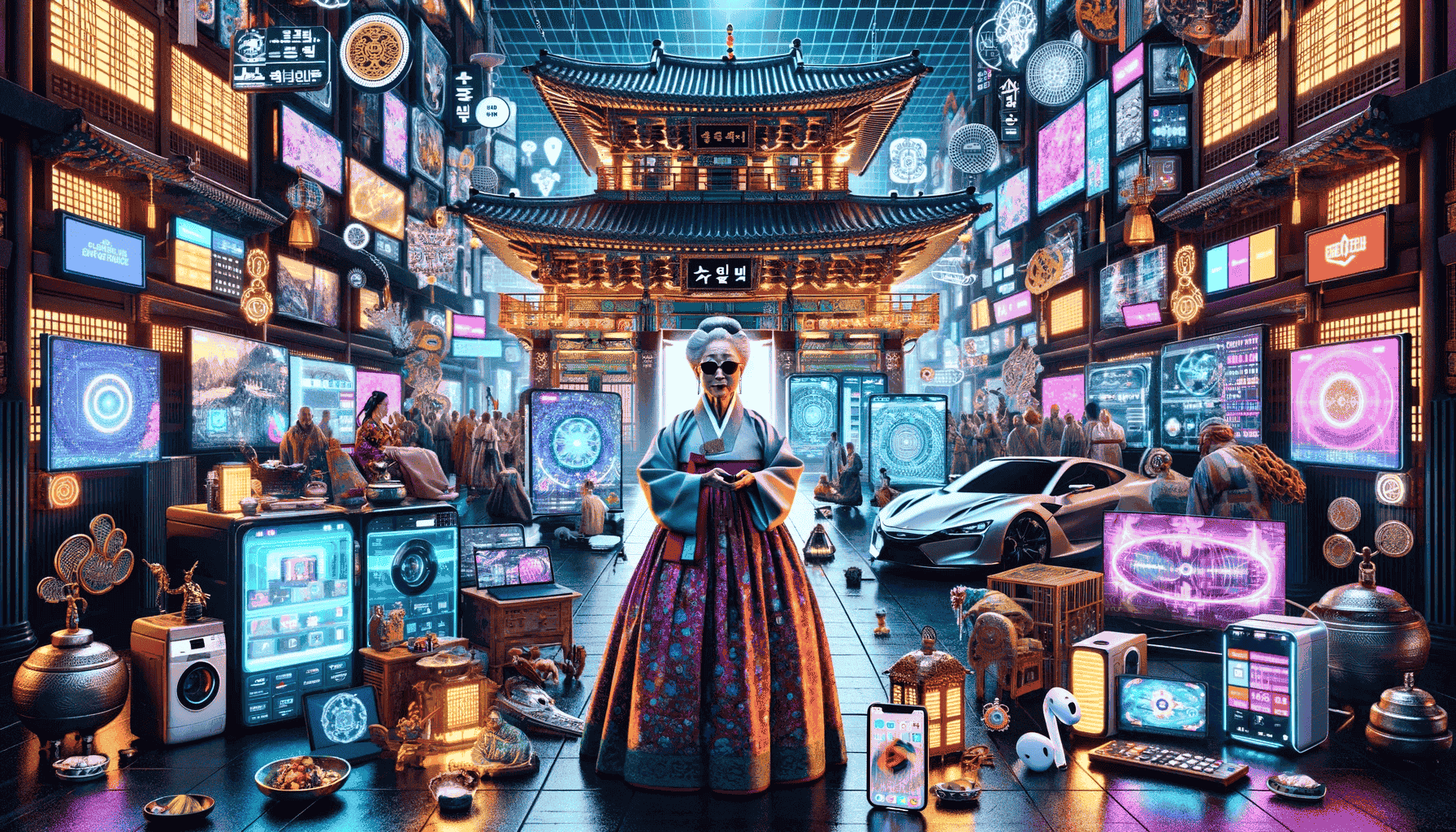Links to This Note1
Grandma's Koreapunk
2024-05-23 Essay.
Grandma's Koreapunk

My grandmother's house is such a mysterious place--what I call Koreapunk.
As I enter, I'm greeted by a captivating blend of Korean folk religion and Buddhism. Artifacts for worshipping the Jowangshin (조왕신, Kitchen God) stand proudly in one corner, while sacred spaces dedicated to Buddha occupy another.
The enigmatic Jangseung (장승, totem poles) keep watch over the house, a testament to the deep-rooted spiritual beliefs that have shaped my family's history.
But what truly sets my grandmother's house apart is the seamless integration of technology amidst these traditional elements.
My grandfather was a businessperson, who luckily had regular chances to fly to Japan (we're talking circa 1970 when Korean GDP was about 1/6 of Japan)
In the 1970s, he naturally became an avid electronics collector and has amassed an impressive array of devices, from the iconic Walkman series to the latest smart TVs and mobile phones.
My grandfather had already passed away, but my grandmother's digital literacy has stood strong even at her octogenarian age!
Watching my grandmother effortlessly navigate her smart TV and smartphone, connected through the Google ecosystem, is a sight to behold. She wears her AirPods with the same ease as traditional Korean accessories.
But it is my grandmother's remarkable software comprehension that truly astounds me. As the family's designated IT support, I am often called upon to troubleshoot and fix various devices.
Unlike many of her contemporaries, my grandmother approaches these issues with a keen eye and an analytical mind.
She articulates her needs and queries with clarity that would put many younger tech users to shame, leaving me in awe of her adaptability and willingness to learn.
Some of today's actual requests:
"I haven't logged into YouTube on the living room smart TV yet. YouTube Premium isn't working and keeps asking me to log in. If I log in, will it only play on one TV or both simultaneously? If both, I'll log in."
"I turned on the iPad after a long time and it said I have to log in to Google and YouTube again. Do that for me."
"I want to remove this app icon from the smart TV and move this one, how do I do that?"
"You know the ad blocker you installed on the browser last time? Now I don't see ads in the browser, but I still see them in articles I click on in the Google app newsfeed. Is it possible to remove ads there too?"
Gen Z may think these questions aren't that complicated, but I'll repeat it: my grandmother is over eighty.
Moreover... Any developer dealing with bug reports or feature requests will know that it's really, really rare for someone to pinpoint their needs and demands so clearly and ask questions so lucidly.
As I reflect on the magic of my grandmother's house, I can't help but see it as a representation of the Korean culture I aspire to cultivate.
It is a space where healthy Korean folk beliefs are celebrated, and capital and technology are harnessed to reinterpret tradition in a refined, positive cyberpunk manner.
Perhaps the Neo-Korean Renaissance that I so desire may be an attempt to emulate my grandmother's house.